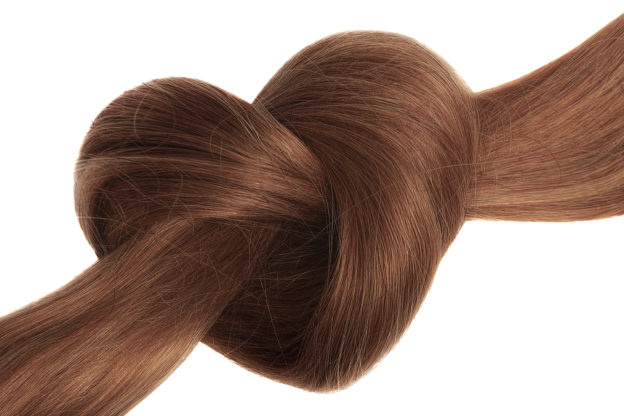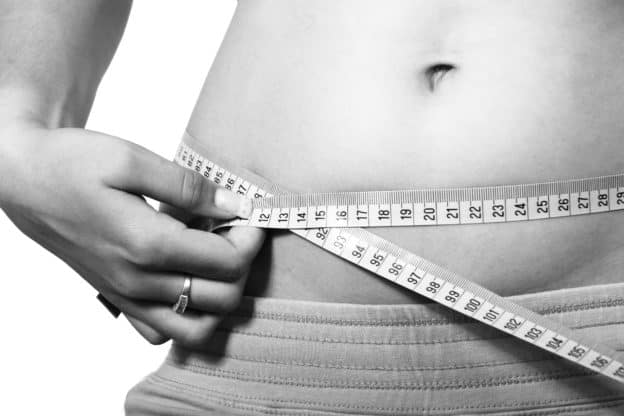Hair loss and baldness are conditions that puzzle and frustrate tens of millions of people. Though it can be tempting to treat the surface with topical medications, evidence shows that the issue goes deeper – deeper than the scalp and the hair follicle. The problem of hair loss is related to autoimmune conditions, gut health, hormones, nutrition deficiencies, and stress.
What does that mean? It means that we can identify and treat the systemic imbalances that are showing up on your scalp! Once we identify the root cause(s) of your hair loss, we can heal the problem at the source and improve this frustrating condition.
Autoimmune Conditions & The Gut
In autoimmune diseases, our body confuses its own normal cells and tissues with foreign invaders, subsequently launching an attack against itself. Conditions such as celiac disease, rheumatoid arthritis, type 1 diabetes, Crohn’s, and Hashimoto’s hypothyroidism are common autoimmune disorders. And, about 25% of people with autoimmune diseases develop a second or more conditions. Alopecia areata, which is when the immune system attacks the hair follicles, is a common accompaniment to other autoimmune disease states.
70-80% of the immune system lives in the gut, so we cannot heal any autoimmune condition without addressing the microbiome. When individuals have dysbiosis, there is an imbalance of good and bad microbes that cause inflammation, autoimmune attacks, and general digestive problems. When hair loss is due to an autoimmune attack against the hair follicles, healing the gut for a healthy immune system is key. In addition, an unhealthy gut cannot digest or absorb nutrients properly. No matter how much you eat, you will become nutrient deficient if your gut is in this state.
A professional should test and treat these imbalances to restore the microbiome. But, in general, eating whole foods instead of processed foods (anything in a package or not in its original state) is important. Fiber from fruits, vegetables, and whole grains supports gut health, and avoiding caffeine, dairy, and alcohol will also help decrease inflammation and rebalance the gut.
Hormones
Hair follicles have receptors for hormones, making hormone imbalances a leading cause of hair loss. Common hormonal conditions that affect hair loss include hypo- and hyperthyroidism, high testosterone, polycystic ovary syndrome (PCOS), insulin resistance, estrogen dominance, and high cortisol (from stress).
The gut, liver, and blood sugar are three main systems that manage the endocrine system and hormone balance, so hormone control is not an isolated function. If you suspect imbalances, you should work with an endocrinologist and functional nutritionist to diagnose and restore hormone balance.
Aging is another common reason behind thinning hair. This is usually due to hormone decreases that are normal with age. Sometimes natural hormone replacement, such as progesterone, would slow the thinning of hair.
Nutrient Deficiencies
When nutrients run low – whether due to an unhealthy gut, inadequate intake, or other conditions such as low stomach acid or bile secretions – your body goes into survival mode. The vitamins, minerals, and proteins required for hair growth will be redirected to essential functions to keep you alive, and your hair growth cycle will stay in the stagnant telogen effluvium (TE) phase.
Several particular nutrients play a role in hair growth and maintenance, and their deficiencies have been associated with inflammation, autoimmune conditions, and hair loss:
- Vitamin A – promotes sebum production in skin glands to keep scalp and hair healthy
- B Vitamins – biotin in particular is required to produce keratin
- Vitamin C – antioxidant to protect the hair follicle. Involved in collagen production, increases iron absorption
- Vitamin D – stimulates hair follicles to grow
- Vitamin E – an antioxidant
- Omega-3 Fatty Acids – an essential fatty acid that reduces inflammation
- Iron – helps carry oxygen throughout the body for cellular metabolism, growth, and repair
- Selenium – antioxidant that is involved in thyroid function, immune health, hormone balance, and metabolism. Low levels are associated with autoimmune and inflammatory conditions such as Crohn’s and arthritis
- Zinc – promotes the hair growth and repair cycle
- Protein – serves as the building blocks of your hair.
These foods are excellent sources of the nutrients mentioned above:
- Beans – protein, zinc
- Meat – protein, iron, selenium
- Eggs – protein, biotin, zinc, selenium
- Berries – vitamin C
- Spinach – iron, vitamin A, vitamin C
- Fatty fish – protein, selenium, vitamin B, vitamin D, omega-3s
- Carrots, sweet potatoes – vitamin A
- Avocados – vitamin E
- Nuts – vitamin B, vitamin E, zinc, selenium, essential fatty acids
- Seeds – zinc, Vit E, selenium, omega-3s
- Peppers – vit c, vit A.
- Fortified dairy – vitamin D
Eating a varied diet is crucial for hair health. Hair follicle cells use carbohydrates for their energy source so making sure you have adequate carbs from whole foods (fruit, potatoes, whole grains) is important too.
Stress
Stress causes your adrenal glands to produce more cortisol, which then alters hormone levels, energy and metabolism, inflammation, and the gut. Each of those features affect hair growth, and chronic hair loss from ongoing stress can mean that your hair growth cycle is overwhelmingly stuck in TE.
Managing stress to prioritizing healthy stress responses is crucial for both hair and full-body health. Some effective stress-management techniques are:
- Movement and exercise, including walks and short breaks from work
- Meditation using guided apps
- Individualized counseling/therapy
- Maintain a consistent bedtime routine to get enough sleep
- Yoga with online videos or at a studio
- Deep breaths throughout the day
- Sunlight and fresh air
Genetics and also medication side effects are sometimes to blame for hair thinning. There isn’t much you can do about genetics, but your diet and lifestyle will help shape how your genes express themselves. Check with your doctor about medications. Anti-depressants can have hair loss as a side effect. Also, severe (and short lived) hair loss can occur after a trauma, such as a serious car accident, surgery, or life-threatening illness or infection.
Though the list of root causes for hair loss might seem long, they are all intertwined, and they will all respond to treatments. Many solutions overlap and will improve multiple causes at once! These solutions are meant to serve as guidelines but are not one-size-fits-all, and I recommend that you work with a functional dietitian to personalize a care plan to restore your health and your hair.
Co-written by Heather Zeman, MS



